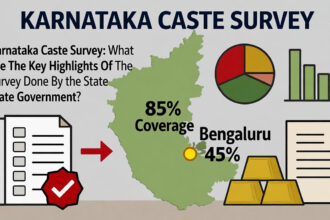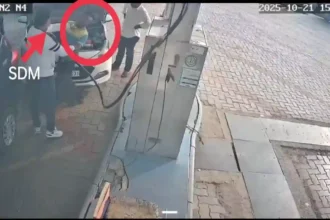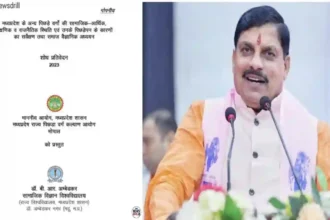The Union Government has announced that the 2027 Population Census will be conducted in two phases, and for the first time since Independence, it will include caste enumeration—a move being viewed as politically motivated and socially divisive by many, especially among the General Category youth.
Census Timeline & Details
As per the notification from the Union Home Ministry:
The reference date for most of the country will be 1st March 2027.
For snow-bound areas including Ladakh, Jammu & Kashmir, Himachal Pradesh, and Uttarakhand, the reference date will be 1st October 2026.
The official gazette notification for this census is expected to be published on 16th June 2025.
This will be India’s first census in 16 years, as the 2021 census was postponed due to the COVID-19 pandemic.
Caste Enumeration: A Return to Identity Politics?
The inclusion of caste data has raised alarms across various quarters of society, especially among citizens who believe in merit-based opportunities and equal rights irrespective of caste.
The announcement has already triggered demands from several political parties—many of them part of the ruling NDA alliance—for:
100% reservation in government jobs and schemes
Extension of reservation to the private sector
Caste-based welfare policies and targeted vote-bank strategies
Critics argue that this approach is a modern form of institutional discrimination, aiming to solidify caste divisions for electoral gains.
❝ A Tool for Social Justice or Political Engineering? ❞
While proponents claim caste data is needed for “targeted social justice”, many believe the real motive lies in vote-bank politics.
Student groups, general category forums, and professionals have begun voicing their opposition on social media, trending hashtags like:
#CensusNotCasteCensus
#StopCastePolitics
#GeneralCategoryYouth
#SayNoToCasteCensus
The opposition warns that such a caste census will fuel more demands, deepen caste consciousness, and distract the nation from pressing issues like unemployment, inflation, and skill development.
Public Sentiment: Merit Over Mandates
Many from the general category argue:
“We are taxpayers, we work hard without any reservation benefits. And now, we are being sidelined further in the name of social justice. Where is our justice?”
They demand a merit-driven society where skill and effort define success, not caste certificates. Critics worry this census will:
Institutionalize reverse discrimination
Increase caste-based appeasement schemes
Widen socio-political fragmentation
A Call to Unite
Several student bodies and civil groups are now calling for peaceful protests, legal challenges, and public awareness campaigns to ensure that the 2027 Census remains a tool for governance, not caste-based politics.
They urge the youth to raise their voices democratically and demand that the government focus on real development metrics—education, employment, infrastructure—not caste lines.
The Road Ahead
As India moves toward its most politically sensitive census yet, the next few months are likely to witness intense debates, policy demands, and possibly even legal scrutiny over the nature, intention, and outcome of the caste enumeration process.
Whether the 2027 Census will serve as a pillar of progress or a divisive milestone—only time, and public vigilance, will tell.
🗣️ What do you think about caste-based census and
100% reservation demands?
📣 Share your thoughts in the comments or on X using #TheNewsDrill.
















